Holiday 2012 Ultrabook and Ultraportable Guide
by Jarred Walton on December 12, 2012 4:00 AM EST“Budget” Ultrabooks and Ultraportables
We’re going to stretch the definition of ultraportable a bit throughout the guide, as the difference between a 1” thick laptop and a 0.7” thick laptop may or may not matter all that much. Keep in mind that thinner usually means a few things: most thin laptops are inherently lighter, but being thin usually means it’s harder to cool the parts (restricted airflow) and typically the keyboards have less key travel. If you’re trying to keep costs as low as possible, there are a few options: get a non-Ultrabook (either with and AMD APU or an Intel CPU), or look for a very inexpensive Ultrabook with hybrid storage. We’ve got three picks, one for each options.
AMD-based Ultraportables
If you’re after an AMD equipped ultraportable, your options are very limited right now, particularly in the US. Toshiba has a 15.6” Satellite S955D, but we’re trying to find a 13.3” or smaller offering. HP’s Envy Sleekbook 6z-1100 likewise misses the cut with a 15.6” LCD, though it can be configured with an A6-4466M, A8-4555M, or A10-4655M if you’re okay with the larger size—Walmart currently has the A8-4555M model selling for $450, which is a great price. Lenovo ends up the closest with their 14” IdeaPad S405, and sadly that’s the smallest AMD-equipped ultraportable we can find, so they win by default. The good news is that the S405 comes priced quite reasonably at $503 with 4GB RAM, 500GB HDD, and a 1.6GHz A8-4555M (along with Windows 8)—or as little as $400 (with current instant savings) with the A6-4455M.
Let’s be clear here: budget ultraportables are not going to compete directly with high-end Ultrabooks or other laptops. With a price of just $400-$500, something has to give, and that something is a few of the extra amenities. The S405 comes with an always-painful 1366x768 resolution glossy LCD; on an 11.6” laptop that’s tolerable, but on 14” it’s purely a cost-cutting measure. Lenovo’s IdeaPad line represents their consumer focus, so you also lose some of the build quality that you’d got on a ThinkPad or other high-end laptop. Battery life is also relatively weak on the S405, thanks to the small 4-cell battery. At the end of the day, however, we’re looking at $400 for a reasonably equipped ultraportable. The A6-4455M and A8-4555M aren’t going to win any CPU performance comparisons, but they’re still a healthy jump up from Atom and Brazos and more than fast enough for typical computing tasks, plus you get a fairly decent iGPU in the HD 7500G/7600G. That’s all in a package that’s less than an inch thick and weighs just under four pounds.
Intel-based Ultraportables
On the Intel side of the fence, there are a lot more offerings to look at, and the manufacturers have clearly put a bit more effort into the designs. Where we only had three AMD LV Trinity laptops to look at, there are fully 34 sub-$750 laptops with Intel Ivy Bridge ULV processors available at Newegg right now. The least expensive options start at $500, with 20 falling more into the $700-$750 range. The good news is that for that much money, you can get a fully equipped Ultrabook if that’s what you’re after. As with AMD, we’re going to eschew anything larger than 13.3” this time, which leaves us with 14 laptops to consider.
At the bottom of the price list is Acer’s 11.6” V5-171-6422, an almost Ultrabook that Dustin reviewed recently. The fact that it’s not actually an Ultrabook means that it’s a bit thicker and has better key travel, but you get a 500GB 5400RPM stock. The good news is that you can find the V5-171 going for $499 on Amazon, which is a great price for an i5-3317U based laptop. With the savings relative to actual Ultrabooks, you could easily buy a quality 128GB or even 256GB SSD. The V5-171 weighs just over three pounds, and it pretty much puts the nail in the coffin for most netbooks.
As an alternative that’s a bit larger than the V5-171, consider Dell’s Inspiron 13z. It’s nearly an Ultrabook, but it lacks SSD-storage and might be just a hair too thick. At the regular starting price of $600 for the i3-3217U equipped model, I’d give it a pass, but right now the 13z with i5-3317U, 8GB DDR3-1600, and a 500GB 5400RPM HDD can be had for just $550. If you don’t mind the lack of Turbo Boost, the i3-3217U with 6GB model knocks $100 off the price, going for an attractive $450. Dell skimps on a few areas like the LCD and Ethernet (100Mbps, really?), and the keyboard isn’t backlit, but otherwise it’s a very decent laptop. CPU performance should be quite a bit faster than the LV Trinity parts above, but iGPU performance is likely slower. Something else to consider is that the Inspiron 13z is actually upgradeable with a bit of work, so you can swap out the HDD for an SSD and upgrade the RAM.
Budget Ultrabooks
Looking at the remaining laptops in our Newegg list, it’s interesting to note that not a single option comes with pure SSD storage; all of the sub-$750 Ultrabooks have hybrid storage, which is something we’d really like to get away from. The cost of a 24GB/32GB SSD with a 500GB HDD should be pretty much equal to a 128GB SSD, but in the “more is better” category we find all of the manufacturers vying for your dollars with 500GB HDDs and SSD caching. Caching is still a step up from pure HDD storage, but in practice it often feels more like a hard drive when you’re actually wanting it to perform. Note that there are also some Sandy Bridge Core i3 Ultrabooks still hanging around; I suppose they’re not bad, per se, but I’d suggest going with Ivy Bridge and HD 4000. So with that in mind, is there any one specific Ultrabook we’d recommend above the others?
This is a tough call, frankly, as just about everything starts looking similar in terms of features and specs at these prices. None of the Ultrabooks under $750 have anything better than a 1366x768 display, which is a real shame. I’m also ruling out Sandy Bridge and Core i3 equipped Ultrabooks, so what we end up with is just two options, both near the $700 mark: the Lenovo U310 and the Sony VAIO SVT13125CXS. Everything else that meets the CPU requirement (at least Core i5 IVB) tends to be $800 or more. Between the Sony and the Lenovo offerings, Sony gets the nod in terms of RAM as it ships with 4GB RAM onboard with a single SO-DIMM slot, so 8GB is possible and the default configuration ships with 6GB. On the other hand, Lenovo offers an extra USB port and what I consider to be a better keyboard layout. For the small difference in price, you can go either way depending on what you value most.
Update: The Lenovo U310/U410 both appear to have had issues in the past with faulty WiFi, which you can read about on Lenovo's forums. A hardware fix was implemented this past summer, but at least one reader purchased a laptop in November and received a unit manufactured prior to the fix. If you're not willing to deal with the hassle of sending a laptop in for repairs, I'd suggest sticking with the VAIO.


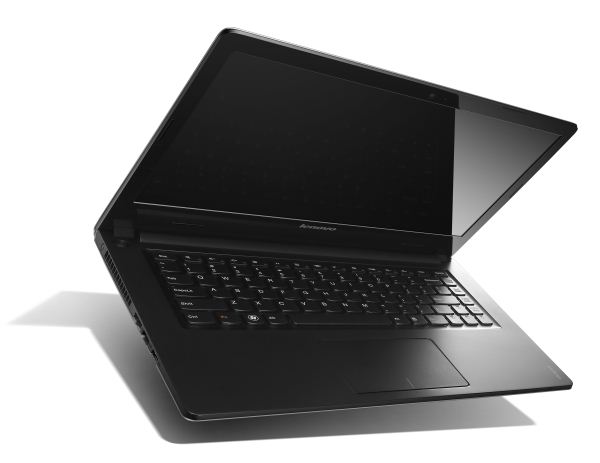
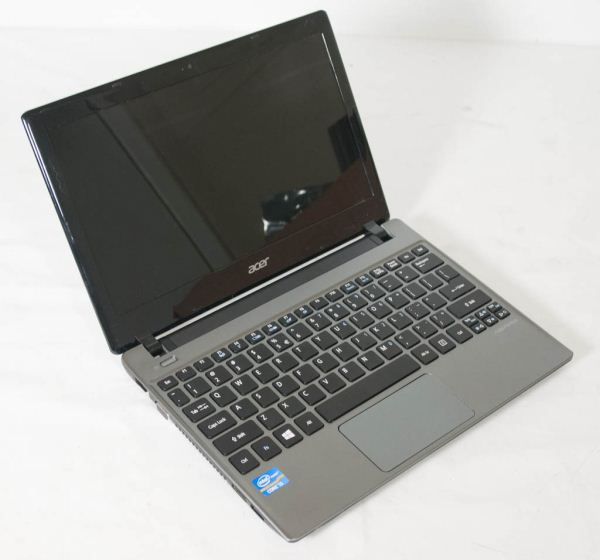
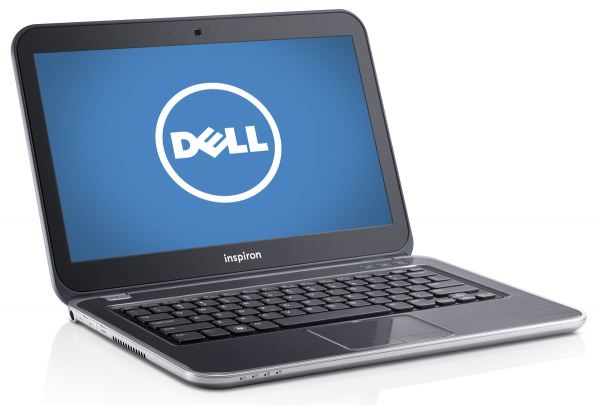
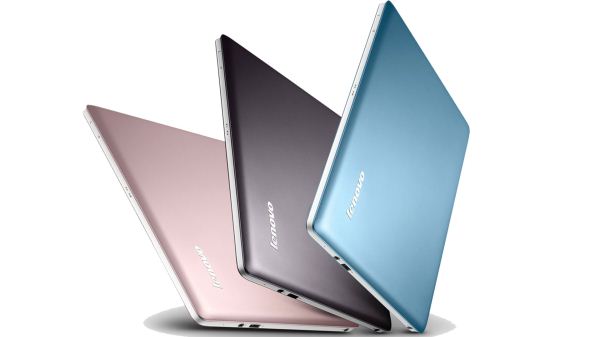
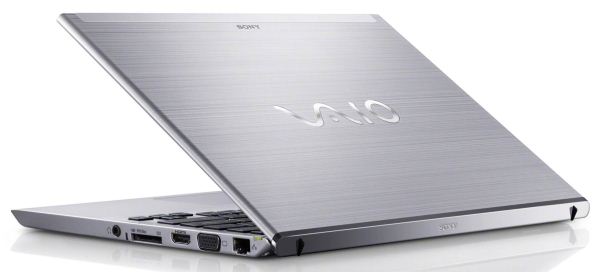








77 Comments
View All Comments
mayankleoboy1 - Wednesday, December 12, 2012 - link
Ultrabooks -- Shiny Things For The Stupiddi1in - Wednesday, December 12, 2012 - link
Just because you didn't need them (or can't afford), does not mean others don't.SetiroN - Wednesday, December 12, 2012 - link
After being seduced by the hype and getting an UX31A zenbook prime, I can only agree with him.Similar performance to $400 laptops for 4 times the price with a weight and battery life that still leave something to be desired.
I'd much rather have a standard i3 (which performs better) than those overpriced ULV cpus, in a thicker laptop that takes advantage of it with a seriously hefty battery and acceptable dedicated, switchable graphics.
Shiny things for the stupid - or overly rich. Apple products in a taiwanese package.
Spending $1500 to still have absymal performance and the same kind of battery life just for the sake of some thinness is ridiculous, especially considering that they're not really all that incredibly more portable than standard 13".
karasaj - Wednesday, December 12, 2012 - link
Why would you buy an ultrabook if you need more performance and heavy graphics... there's a reason MBA and iPad's became popular, and it isn't because of their price per performance.SetiroN - Wednesday, December 12, 2012 - link
I'm not sure what post you've read, but nowhere did I say I needed more performance or heavy graphics.As most people, you read what you want to read instead of trying to understand other people's perspective.
I'll try and help you: what I said is that
there is no reason to pay 4-5 times the price just to have a fashion item, because a normal 13" with an i3 could allow for a much larger battery and a dedicated GPU (which doesn't mean a 680m as you thought, just something more acceptable than the absymal HD4000) at a fraction of the price of high end ultrabooks while maintaining similar portability; Ultrabooks aren't really all that more portable because their battery still lasts 4 hours while weight and thickness aren't lower enough to justify the price. Nor does the cheap e-IPS screens that they market as if were EIZO while in reality they just cost just a little more than TNs.
If you need your CPU to consume less power, you can configure a power profile that lets any Ivy Bridge CPU consume the same kind of low power of the overpriced ULV processors that Intel is so willing to shove down our throats.
You pay for FASHION, not real added value.
The reason MBAs and Ipads became popular is that they offer good enough performance while being STILISH, regardless of their cost.
A smart buyer that doesn't care about making an impression with their laptop would save $500 and get the same thing half an inch thicker, while improving graphics performance in the process.
Nvidiaguy07 - Wednesday, December 12, 2012 - link
Im sure i can pay much less for a big clunky piece of crap, but lugging around something like that - with many inferior parts isnt just about style.-sent from my 13" macbook air
aahjnnot - Wednesday, December 12, 2012 - link
You make the mistake of assuming that everyone is like you.Like many people, I have absolutely no interest in gaming so performance on my 13" MacBook Air is more than adequate. It launches applications instantaneously, resumes from suspend in a few seconds and is even fast enough for light video editing.
Of far more importance is the weight (it's light enough for me not to care about carrying it), the battery life (enough for an evening on the sofa), the screen quality and resolution and cool operation (my sperm don't care if it's on my lap).
If you think I bought it as a FASHION statement, you're an extraordinarily bad student of human behaviour.
Ananke - Wednesday, December 12, 2012 - link
I got $250 Asus made Pentium laptop, which is actually lighter than MBA, has decent build quality and allows me to do with ease the same what you are doing with your MBA :). ..The guy is right, ultrabooks are overpriced fashion statements, that command huge profit margin - the only reason manufacturers introduced them and still trying to market so desperately. The reality is that almost nobody buys them, and the pace of sales of ultrabooks actually decreases. These are the same as Aston Martins - beatiful things, but with very limited number of customers.Now, if a nice equipped ultrabook is sold at regular price of $300 , that's different story.
aahjnnot - Wednesday, December 12, 2012 - link
Does the $250 Asus have an SSD? Does it have more than 1280x768 screen resolution? Does it have 5+ hours battery life? Is it slim as well as light?If so, I'm impressed. If not, it sounds as if it meets your requirements perfectly, but it doesn't meet mine.
We're all different. But to assume that someone else is driven by fashion is extraordinarily naive. I looked long and hard for an alternative to the MacBook Air, but, at the time, I couldn't find any equivalent on the market. I personally couldn't care less about fashion, but I'm happy to pay good money top get the features that are important to me.
rickjr82 - Friday, December 14, 2012 - link
Also, what about the touchpad and keyboard? I do a lot of development work on my machine and don't want to put up with something that isn't reliable or easy to use.I looked all over for a well reviewed laptop with an ssd and high screen resolution and would have much rather spent $600 than $1099 for my MBA, but I couldn't find anything.